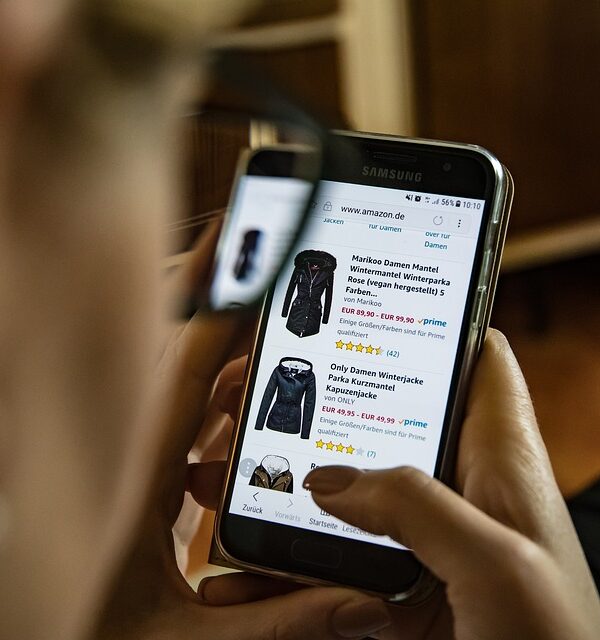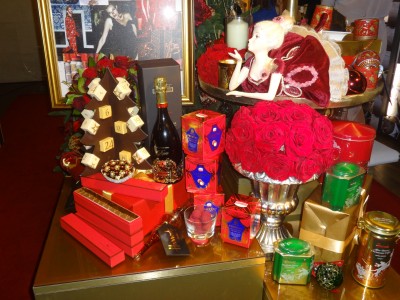Oscar Pinto-Hervia has spent more than two decades developing one of the UK’s most successful luxury fashion retailers.
As the CEO of Hervia Bazaar, the 49-year-old is famous for championing both British and global designers from his prestigious real-life store and pioneering online outlet.
Here he explains more about the thinking behind his unique business which regularly makes it into the world’s best shopping directory lists and its plans for the future.
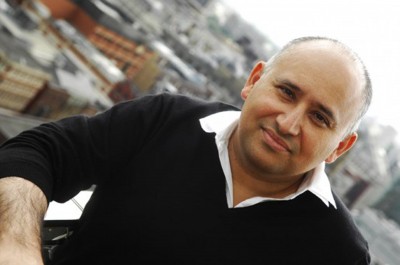
Hervia has a long and illustrious history. Can you talk us through the history of the brand and how and where it all began?
We began in Manchester which was my second home. My family are from Chile but we came to the UK in 1978, originally to London and then to Manchester because my mother had friends who had already settled here.
We lived in Ardwick, then Chorlton – where my mother still lives. I was always very interested in fashion and from an early age it was what I wanted to do.
I was good at school, quite academic, so some of my relatives wanted me to do something else, work in a bank or whatever, but I was very creative too and I wanted to follow this dream I had of working in fashion.
I did a foundation course at what was then Manchester Polytechnic (now MMU) and started out as a buyer for a store in the city.
I met my partner shortly afterwards and started looking at buying for other companies too. Together we wanted to open our own store so I could bring people more designs and to show more global and avant garde fashion, the kind of things that I was buying in London and elsewhere.
I was buying all my clothes when I visited friends in the capital because I couldn’t find them anywhere else. I thought ‘I can’t be the only one’ so I knew, instinctively I’d have a captive market.
How did the Manchester shop develop into a global company?
We started off in a very small way, selling labels we liked, from designers like Helmut Lang and Alexander McQueen, from a store in the Royal Exchange in Manchester.
From the start we were different. There were only a handful of people selling this type of high-end fashion in the city and we wanted our shop to be a bit more fun, to show the playful side of the fashion that we loved.
We showed up and coming designers in a way that worked well for them and their label. Because we were an independent store, we could allow them to showcase their individuality and vision, to represent themselves in the way they wanted.
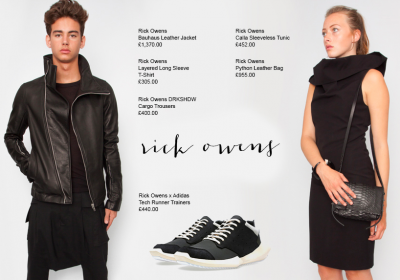
Manchester has always been a special place and when we opened, in 1993, it was very, very vibrant.
On a personal level I was out clubbing and wearing the clothes and people liked them so of course, my friends would come into the shop and celebrities but it wasn’t just about that.
There were pieces you could just as easily wear to work too. That has always been part of my ethos – to be able to offer quality and choice, something for everyone.
One of our most popular designers was Vivienne Westwood. She was very successful for us and it got to the point where we were restocking all the time.
They talked to us about opening stores for them and so we opened our first one in Manchester. We opened nine in the end and that became a main focus for us.
Now we’ve gone back to our roots – selling a range of different designers, offering our customers even more choice.
In an age of department store designer departments, what makes Hervia Bazaar stand out?
Well there has to be a place for all the different kind of stores but I believe that we can offer something slightly different from them.
Department stores are great but for me personally, they lack a bit of soul. They can be overwhelming too – you go in and think ‘where do I look?’
With a store like ours you can enjoy a more personal relationship with customers. I can buy specifically for them because I know the kind of things they like.
Service has to be different too. In the 1980s I used to go to stores where the attitude of staff was to ignore you basically, they would treat you badly and make you feel very uncool and I didn’t want that.
I’d go to New York and the service there was very different, much better and that’s what we wanted to emulate, we wanted to reintroduce the service element I felt we lacked.
For my staff it is there job to make everyone feel welcome – to say hello and goodbye. I would never want a store of mine to be intimidating so I’ve deliberately turned away from stark décor, the black and white you so often see.
What is your relationship with designers?
From the start we have been keen to champion new talent and British designers, either those that are already established or those that are up and coming. I also work with the British Fashion Council on their judging panel for emerging designers.
I love Japanese design and from the start we have worked closely with a range of designers – people like Yohji Yamamoto and Comme des Garcons. I like the simplicity and the plainness of the Japanese aesthetic. The use of black appeals to me too. So many of the designs do not date easily, they stand the test of time very well. The quality comes through, there is that element of luxury but presented in a very understated way. It means they are very wearable but also a great investment.
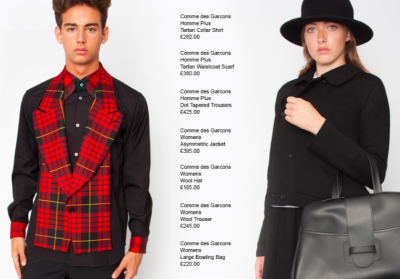
We have a way of behaving in South America – you never try and show how much wealth you have through your clothes, we would never want to look flashy or ostentatious, but at the same time we appreciate quality, expressed in the feel or cut of clothes. I think lots of people feel the same way and Japanese design is so often about a sense of style, something timeless and long-lasting.
Who are your clients and how has that changed?
Of course our client base has evolved over time but they are all people who appreciate not just quality and luxury but also the lighter side of fashion, its playful nature and artfulness.
They are people who know what they want and come back for regular items, people my age who have always been with us, then we have a lot of customers who are here from China. They’re here as students and will come to us while they’re in Manchester.
They have an interest in high end fashion which continues when they go home – they buy through our website.
How has the way you run the business changed?
A few years ago the balance of the business was 70/30 in favour of the store, now it’s the other way round.
As a business we’re constantly looking for ways of doing things more efficiently. In the early days we used to take orders by fax. We’d come in, in the morning to see a long fax printout, people’s wish lists, then they’d send us a credit card payment.
As with many retailers, now we see online and offline working together too. People will see something on the website, come in store to try it on, then buy it from the site; it’s about creating as much choice as possible.
Fashion should be fun and sexy but also commercial.
Collaborations are increasingly important. So we were asked to open Y-3’s stores in London and that worked really well for us because they knew us and they know that we have a real understanding of the brand and the way they would like to be presented to customers.
Childrenswear is a relatively new area for us but something we are starting to offer more and more.
What’s coming up next for Hervia?
I’ll be going to London Fashion Week and for me it is the best of all the fashion weeks. It is the most fun, an amazing showcase for our great talent.
Next time you’re out shopping in Manchester, head away from Market Street and you’ll find Hervia Bazaar tucked away at 40 Spring Gardens, just off King Street. If you’ve seen something on their website, www.hervia.com give them a call on 0161 835 2777 and check they have it in stock.


